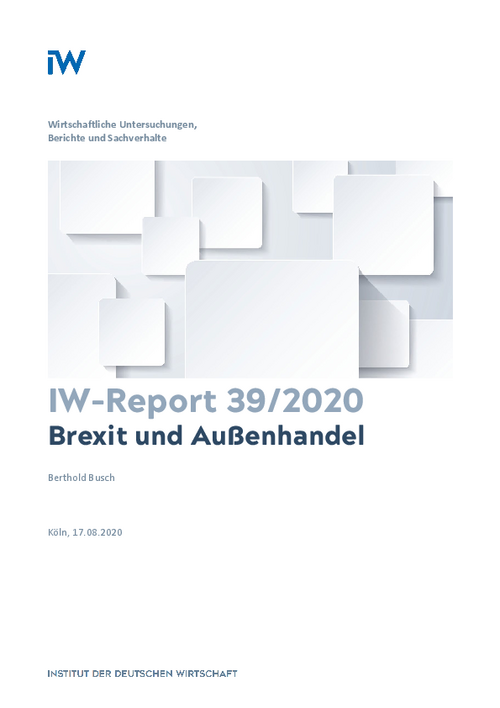Even though the British have already left the European Union on 31st January 2020, a "hard brexit" is not yet off the table in so far as the two parties have not yet agreed on an agreement on future economic relations.

Brexit and Foreign Trade
IW-Report

Even though the British have already left the European Union on 31st January 2020, a "hard brexit" is not yet off the table in so far as the two parties have not yet agreed on an agreement on future economic relations.
So far, the negotiations have produced hardly any results. Several points of contention stand in the way of an agreement for some time. These include the nature of the agreement, differing views on the extent to which the United Kingdom must adopt and maintain the European Union's regulatory framework (level playing field), the design of the rules of origin and future access to fishing grounds in British waters. The uncertainties associated with the preparations for the Brexit and the uncertainty as to whether the European Union and the United Kingdom can agree on a free trade agreement have already affected British-German foreign trade. While in the long term from 1991 to 2015, German exports to the UK grew by over 5 per cent on average per annum, there has been an average annual decline of 3 per cent over the last four years. In terms of the individual product groups, motor vehicles and parts in particular suffered a decline in exports and imports. By contrast, mechanical engineering and electrical equipment defended their position well. The corona pandemic put an additional strain on British-German foreign trade. This is shown by a comparison of exports and imports in the first four months of 2020 with the corresponding figures for the previous year. But here too the picture is not always uniform.

Berthold Busch: Brexit und Außenhandel
IW-Report

More on the topic
Not so Different?: Dependency of the German and Italian Industry on China Intermediate Inputs
On average the German and Italian industry display a very similar intermediate input dependence on China, whether accounting for domestic inputs or not.
IW
China’s Trade Surplus – Implications for the World and for Europe
China’s merchandise trade surplus has reached an all-time high and is likely to rise further. A key driver appears to be a policy push to further bolster Chinese domestic manufacturing production, implying the danger of significant overcapacities.
IW